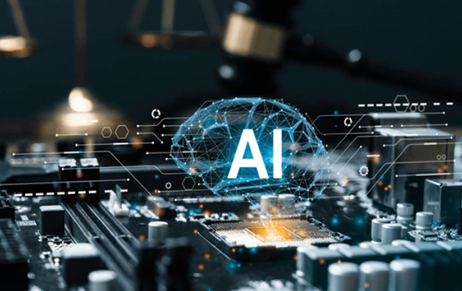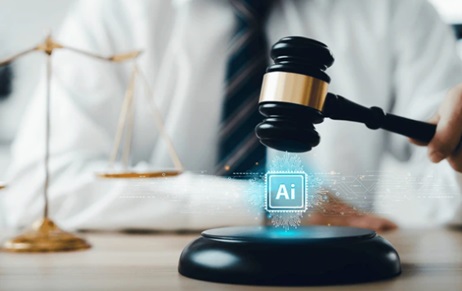Intellectual Property Rights (IPR) are like different keys for different locks. Just like every lock…
Intellectual Property Rights for Social Media Influencers
‘Influencer marketing,’ albeit a new word, has emerged as one of the most effective strategies to create money across all industries. A Social Media Influencer is someone who creates unique material that keeps people interested on multiple social media platforms, causing them to return for more high-quality information. A common issue among digital influencers is whether the content they generate is protected by intellectual property rights.
Yes, the answer is yes! The content generated and disseminated by influencers on social media, like other works of the mind, is a production of the mind and hence falls under the scope of protection afforded by IPR in India.
Types of Intellectual Property Rights applicable to Digital Influencers
Copyright
One of the most significant methods to safeguard material on social media is through copyright. The reason for this is that copyright encompasses all types of original literary, artistic, musical, theatrical, cinematographic, and other works. So, whether it’s your original reel, a musical composition, a YouTube video, a painting you shared, or a write-up you wrote as a social media influencer, everything is copyright protected. Even a tweet is protected as a literary work under copyright.
All original works are protected by copyright. Copyright is applied to fresh and unique work as soon as it is created.
However, in order to have legal proof of ownership, it is always advisable to register for copyright registration.
Trademarks
In today’s market, a distinct brand identity is critical in all company sectors. Influencers that make a lot of money from internet marketing must also defend their own brand identification. The easiest method to accomplish this is to register a trademark.
Trademarks encompass Instagram handles, YouTube channels, and user names on numerous social media sites.
Why should digital influencers defend their intellectual property rights?
Unlike offline business sectors, original material on the web is simply and freely accessible to anyone. For modern designers, this may be both a blessing and a curse. When your work begins “trending,” it’s tough to maintain track of how, when, and where it’s being replicated or re-published. It may appear innocuous at first, but we’re confident no one wants others to profit from their original efforts.
[image Sources : Shutterstock]

If the Artist had registered his work as Copyright, he would have had legal proof of ownership in this situation. Furthermore, he might sue these Moguls for unlawful use of his original work.
In this case, despite the artist’s lack of Intellectual Property Rights protection, the duplicated piece was removed. But keep in mind that this will not always be the case! As a result, registering your original work under various sorts of intellectual property rights is the best approach to safeguard it.
Other reasons why Intellectual Property Rights are essential for your online material
There are several reasons why intellectual property (IP) may be particularly helpful in this digital age, including:
- Avoid having your original material copied.
- Obtain legal ownership verification.
- Protect your work not just in your own country, but globally.
- Make intangible assets.
- Build your market reputation.
- Maintain your distinct brand identity.
Who owns the intellectual property (IP) developed for the purpose of Influencer Marketing?
Social media influencers sign contracts with businesses to promote their products by providing original content for such brands. The right to such content is generally granted through an agreement between the influencer and the brand they are promoting. The brand/business shall own all sorts of content developed for marketing unless otherwise specified in the agreement. If no such clause is included in the agreement, the original creator, i.e. the Influencer, retains ownership of their work. One of the reasons you’ll need a professional to write a service level agreement is because of this.
The Future of Digital Content Protection on social media
The debate about the impact of NFTs on the intellectual property protection of influencers and content providers has recently heated up. NFTs, or “non-fungible tokens,” are blockchain authentication certificates that apply to online physical goods like as pictures, music, movies, and graphics (as well as other digital content). Whether NFT is their unique work or they prefer to mix copyrighted material with another artist, content producers are still protected by copyright law.
Conclusion
The Bombay High Court noted two major difficulties in the landmark decision Marico Limited versus Abhijeet Bhansali:
The court ruled that the defendant (a YouTube.com video producer) cannot disclose deceptive material to degrade the plaintiff’s goods while claiming to be teaching or presenting the truth to the public. Any initiative to educate the public by presenting them with the accurate and proper information may be applauded. Such an explanation, however, should not be used to disseminate deceptive material that disparages, discredits, or belittles someone else’s goods or induces customers not to purchase the aforementioned product.
Furthermore, the defendant’s improper use of the plaintiff’s registered trademarks in a way harmful to its unique character or repute cannot be consistent with honest practices in industrial or commercial concerns.
As a result, as previously described in this article and after reviewing the preceding case law, we may conclude that the issue of intellectual property on social media is difficult, but it is best addressed by taking suitable steps toward protection. To preserve their intellectual property, creators must:
- Understand that while evaluating a product, they have a sense of obligation to their audience. Reviews should be accurate and fact-based. False advertising should be avoided when defaming a product.
- To protect them, find online trademark registrations, logos, slogans, tags, series names, and their distinctive hashtags.
- Subscribe to copyright for original videos, audio recordings, pictures, writing, and artwork.
- Avoid using brand names, logos, trademarks, and copyrighted material without first obtaining the relevant permits and licenses.
- To prevent infringing on the rights of others, exercise caution and vigilance when registering and using a domain name.
Author: Mrinal Kumar, a student at Amity Law School (Jharkhand), in case of any queries please contact/write back to us via email chhavi@khuranaandkhurana.com or at IIPRD.



